Whether it be chance or fate, the Longhorn Council decided all funds this year will be supporting the Make a Wish Foundation and the wish of someone who will start walking the halls alongside us for the first time today.
“We knew that in order to keep it local, it would be really cool to find a kid that was in the community,” Susan Anderson, Longhorn Council leader said. “Whether it was a kid that was supposed to go to West, or maybe just in the West County area, anybody that would be a little bit closer to us and who we are. With homecoming coming up so quickly, we met with Make-A-Wish and told them what we were looking for to check to see who their people were. The Thursday before homecoming they called us and said, ‘We have a 17-year-old girl who lives in Ballwin, and she is on board to be a part of the event.’”
Make-A-Wish quickly responded with the news that not only was there a patient we could support, but that the patient was a high schooler. That was when Anderson and other faculty got in touch with Madi Foppe, who would soon become our Make-A-Wish ambassador.
“Of course I said yes,” Foppe said. “I felt so honored to be asked, and It made me feel so connected to West.”
Being an ambassador gives Foppe access to all special events and sports games without having to be a West student.
“We understood that Madi wanted to be a senior,” Anderson said. “She wanted to be a kid, she wanted to be a student, she wanted to have that experience that you get to have when you go to high school. Madi is our ambassador, she is our person to say, ‘Hey, it’s a regular kid like me, I’m just a 17-year-old girl and this is what’s going on in my life, but I want to do regular things.’’’
Just two years ago, Foppe would never have been able to entertain the idea of going to public school. Foppe was diagnosed with pancreatitis at 15, an illness that is usually found in adults with ages ranging between 30 and 40 years old. This diagnosis was just the beginning of a lifelong journey for Foppe, a journey that because of Make-A-Wish, we get to be a part of.
“[At first], I couldn’t keep anything down. I thought I had the flu because the symptoms were identical,” Foppe said. “They wondered if I had a tumor. I had gone to the hospital the week before, and they told me I had the flu. They didn’t test [for anything else]. Then the pain at the top of my stomach got so painful that my mom decided to take me [back] to the hospital.”
Foppe’s second visit to the hospital brought testing for pancreatitis, and her results had her immediately admitted.
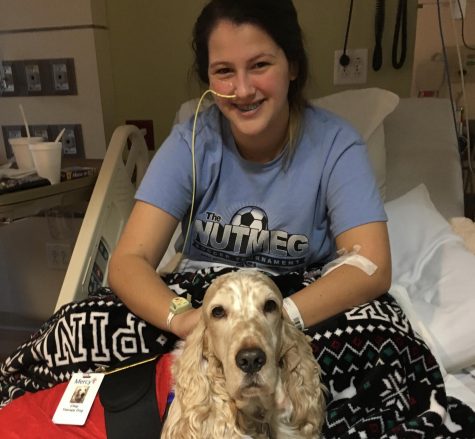
Just two months after getting sick, senior Madi Foppe sits in her hospital bed with Chip, a therapy dog, after undergoing an endoscopy and a colonoscopy.
“My markers were so high,” Foppe said. “I was then admitted to the hospital. I was NPO for three days over Thanksgiving, which meant I didn’t eat anything, and I was on fluids and pain medications. It zapped the pancreatitis, but they were still trying to figure out why I had it. Most people that get [pancreatitis] are older, heavy drinkers, and my family had never had it either.”
She left the hospital but was not out of the woods. Her pain did not subside, and she continued to grow sicker.
“After I was out, I continued to throw up. It started out slow, and then continued to increase to around 20 times a day,” Foppe said. “We did every test in the book, and then, I was admitted to get a feeding tube that goes in through your nose and into your stomach. I threw that up. They tried an NJ tube that went into my jejunum [in my stomach]. That caused so much pain, and it started backing up the food coming in, so I threw that up too. The pain was sharp and burning.”
These hospital stays and doctors visits kept Foppe out of school. Consequently, peers and teachers had varying reactions and opinions to her absence.
“The counselors and grade level principals did not believe me at all,” Foppe said. “I lost almost all of my friends. I don’t know if they didn’t know how to handle it [my sickness], or if they just were too busy. My friends became the nurses and doctors in the hospital. [School] was probably the hardest part of it all. I got no credits for my freshmen year, and before I had straight A’s. After freshman year, my mom pulled me out, and I started being homeschooled.”
Multiple tries for nutrients failed, and this left Foppe and her doctors with limited options. They decided to go more extreme with their solutions and administered a Peripherally Inserted Central Catheter (PICC).
“The PICC line went into my heart [and] fed me through my veins. A lot of people ask if I was hungry, but I wasn’t,” Foppe said. “I was still throwing up even when I had my PICC line, [so] my doctor decided that it was time to go to the Mayo Clinic, in Minnesota.”
The Mayo Clinic tested Foppe for a myriad of things. One test came back with an answer to her excessive vomiting, but not much else.
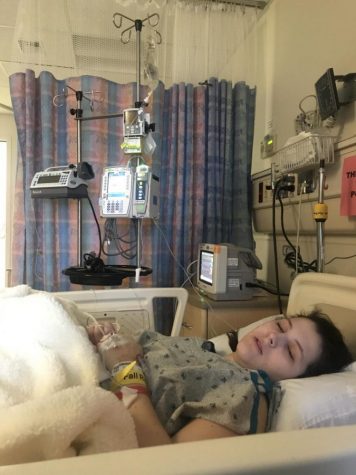
Fresh out of a major surgery, Madi Foppe sleeps. During the surgery, the doctors noticed a hernia that had to be repaired.
“This test showed me that I had something called rumination, which is basically throwing up everything that you have,” Foppe said. “Then they sent me to Ohio, which had a huge waiting list. At home, my gastroenterologist in St. Louis tried everything. She would research and reach out to doctors in Ohio. Until they could get me in, they were telling her what to do. My liver levels went up, so I had to stop the feeding through the PICC line. After I got my PICC line taken out, I got a central line infection. The infection went into my bloodstream; I almost died.”
A central line infection, according to the Center for Disease Control and Prevention, is a serious infection that occurs when germs enter the bloodstream and has a 12% to 25% mortality rate.
“At this time, I was really close to going to Ohio,” Foppe said. “I was in the hospital until the day I left [for Ohio], which lasted for about a week. I slept for about 22 hours a day.”
Ohio recommended a different tube, and Foppe came back to St. Louis to have the surgery done to insert it. She was admitted for 22 days, but the results were less than desirable. Foppe ended up throwing up a portion of the tube and had to go back on TPN. Throughout all of this, genetic testing was being done at home, and the results had just come back; something was not right.
“I knew when the doctor came in that things were different than when I first met her,” Foppe said. “There was a bigger possibility that something wouldn’t come back than that it would, so when it did come back with something so rare, it was crazy. They had to go back to the medical library to figure out what it was.”
Foppe’s testing came back with a diagnosis of RRM2B, a multi-cell depletion disorder. She is one of 18 people in the world afflicted with the condition.
“The diagnosis was a good thing and a bad thing,” Foppe said. “I had been searching for something, and when I found it, the doctors told us there was not much they could do. It was like, ‘Oh wait, I don’t want that diagnosis, can I have another one?’ When [the doctor] explained the symptoms I could have, I was in awe. I’m the oldest-known living case; most kids [that] have it die when they’re babies, so they were confused as to why I was so old to be diagnosed. It is kind of weird that they don’t know anything about it.”
While the diagnosis is not curable, there is symptom management. Because of the condition’s rarity, there is no life expectancy.
“I now have a tube in my jejunum that I wouldn’t have been able to have without my diagnosis,” Foppe said. “[I had] a surgery that wrapped my esophagus up so I could stop throwing up. I had the surgery in January, and by March, my stomach had slowed down. My gut went into failure, and I needed an Ileostomy. I have an ostomy bag for waste now, and it saved my life. I empty the bag around four to five times a day. It has become a part of my routine, [and] now, I’m able to eat.”
The emotional journey is far from over, but Foppe can now look back at the beginning of her story and notice what got her through.
Despite her educational obstacles, Foppe has no plans to hold back on her future. She is now not only our Make-A-Wish ambassador, but a senior at West.
“I felt so honored to be asked to be the Make-A-Wish ambassador,” Foppe said. “I would now be invited to go to all of the school and sporting events. But actually going to school made me feel like I get to have my life back,” Foppe said. “My two goals in life are that I want to walk across the [graduation] stage, and then, I want to go to college and become a doctor. I know that doing online school, I would still graduate, but I wouldn’t be able to walk across the stage. I [just] want to be able to say, ‘I did it.’”



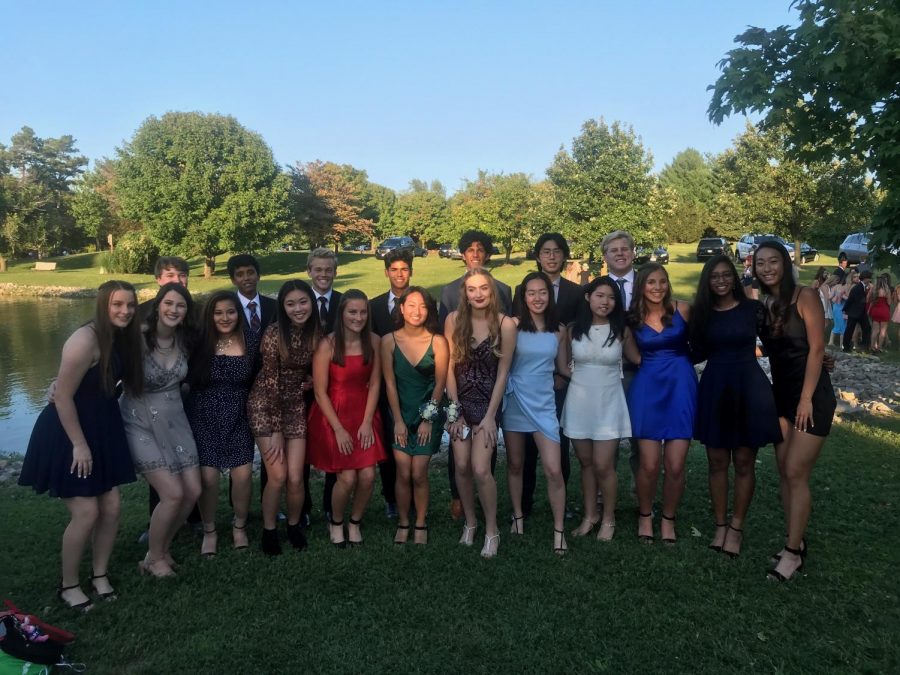
![Focused on providing exceptional service, sophomore Darsh Mahapatra carefully cleans the door of a customer’s car. Mahapatra has always believed his customers deserve nothing less than the best. “[If] they’re trusting us with their car and our service, then I am convinced that they deserve our 100 percent effort and beyond,” Mahapatra said.](https://pwestpathfinder.com/wp-content/uploads/2025/10/DSC_0018-1200x800.jpg)
![Sophomore Aleix Pi de Cabanyes Navarro (left) finishes up a soccer game while junior Ava Muench (right) warms up for cross country practice. The two came to Parkway West High School as exchange students for the 2025-2026 school year. “The goal for the [exchange] program is to provide opportunities for both Parkway students and our international exchange students to learn about other cultures, build connections and become confident, capable, curious and caring — Parkway’s Four C’s — in the process,” Exchange Program Lead Lauren Farrelly said.](https://pwestpathfinder.com/wp-content/uploads/2025/10/Feature-Photo-1200x800.png)

![Gazing across the stage, sophomore Alexis Monteleone performs in the school theater. The Monteleone family’s band “Monte and the Machine” has been releasing music since 2012, but Alexis started her own solo career in 2024 with the release of her first single, Crying Skies. “My whole family is very musical, [and I especially] love writing [songs with them],” Monteleone said.](https://pwestpathfinder.com/wp-content/uploads/2025/09/DSC7463-1200x798.jpg)
![Amid teaching a lesson to her AP Calculus BC class, Kristin Judd jokes alongside her students in their funny remarks. Judd has always enjoyed keeping the mood light in her classroom, along with on the volleyball court. “[I enjoy] that side talk where you see [or] overhear a conversation and chime in, or somebody says something funny,” Judd said.](https://pwestpathfinder.com/wp-content/uploads/2025/09/image-1200x730.jpg)
![Eyeing the ball, junior Ella McNeal poses for her commitment pictures at Clemson University. McNeal’s commitment comes after months of contact with top Division 1 soccer programs. “ It has taken a lot to get to where I am, but I know that [what] I've already been through is just the beginning, and I can't wait for what is to come,” McNeal said.](https://pwestpathfinder.com/wp-content/uploads/2025/09/IMG_4926-1200x900.jpeg)

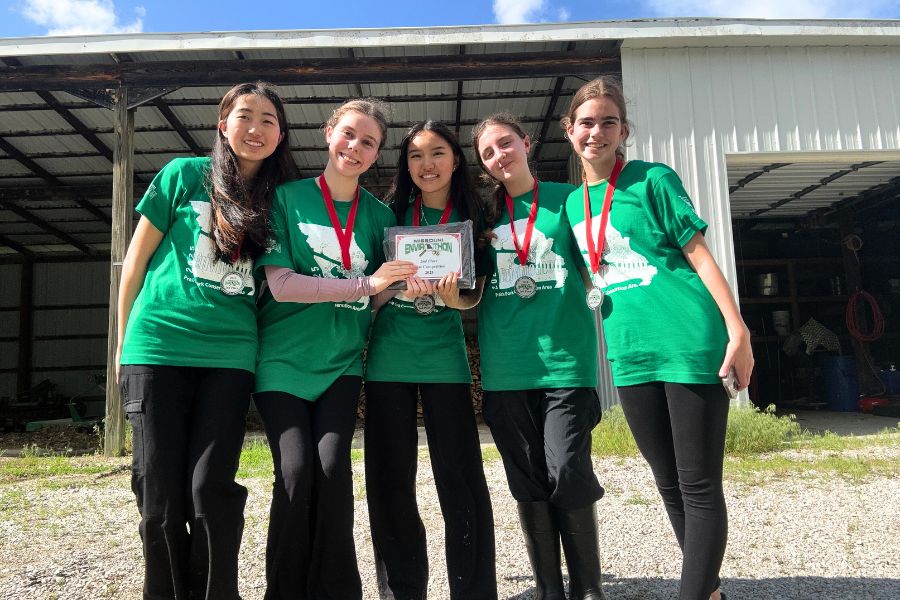
![Senior Adam Zerega stands with senior Dexter Brooks by farm equipment. Zerega often worked with friends and family on his farm. “I've been able to go to my family's farm since I was born. I [spend] at least three weekends a month [on the farm], so I'm there all the time,” Zerega said.](https://pwestpathfinder.com/wp-content/uploads/2025/04/IMG_4872-1200x900.jpg)
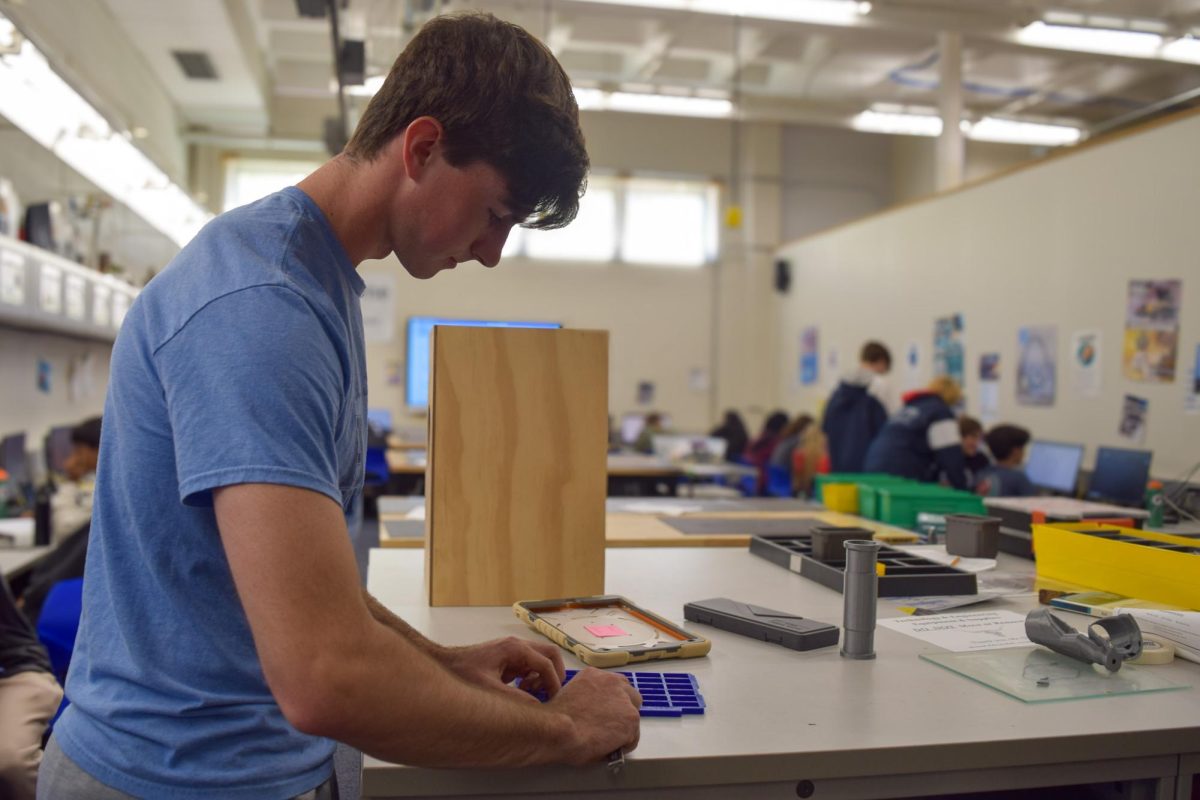
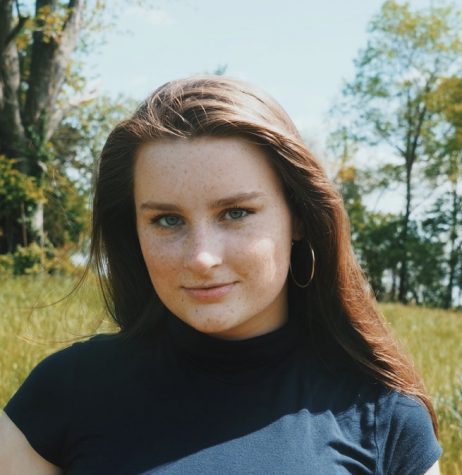
Robin • Oct 9, 2019 at 8:07 pm
Madi is the sweetest, bravest, strongest, big hearted, most loving girl we have had the privilege to get to know. We have had the opportunity to help make some moments even more special for her. Her family is just as amazing. We love our Rockstar! ❤❤❤
Susan Santhuff • Oct 8, 2019 at 1:23 pm
Wow, what a remarkable young woman! I hope she enjoys her time at West and am sure she will go far! I wish her all the best!